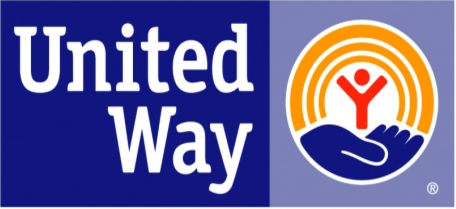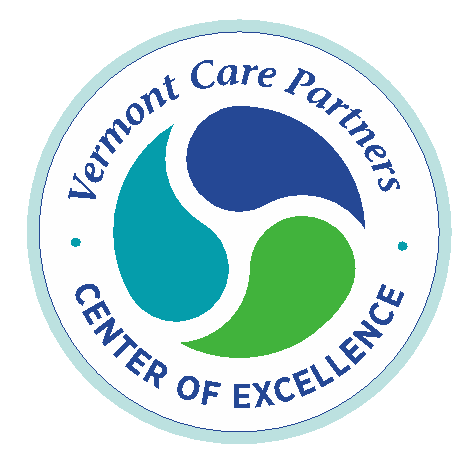In Addison County, the intersection of homelessness and mental health challenges is a critical issue, as observed by Officer Christopher Mason in his recent contribution to the Addison Independent. Our community faces a multifaceted crisis where these issues not only strain our resources but also impact the safety and well-being of our most vulnerable residents. Law enforcement officers, like Officer Mason, are often on the frontline, underscoring their need for better-equipped responses to such complex situations. The lack of sufficient funding and support for mental health services, especially in organizations like CSAC, deepens this crisis. It's a situation that calls for more than acknowledgment - it demands actionable solutions that address public health and social justice, emphasizing the need for supportive housing, increased community mental health funding, and collaborative efforts for effective, compassionate resolutions.
I’m glad to see the Governor and Legislature tackling housing through policy and regulatory reform but housing alone won’t work. We need to make sure the dollars are there to provide supports too. Central to these solutions is the concept of supportive housing. This approach intertwines stable, affordable housing with essential support services, addressing not just the symptom of homelessness but its underlying causes, including mental health and addiction issues. Supportive housing is more than just a roof over one's head; it's a foundation for long-term recovery and stability. The efficacy of supportive housing is well-documented, yet its potential remains untapped, primarily due to funding constraints. We need our Administration and Legislature to ensure funds for organizations to provide critical services once people are housed.
Addressing Officer Mason's concern about involuntary hospitalizations, it's important to note that at CSAC, we approach this as a measure of last resort. While involuntary hospitalizations can be necessary in certain situations, they are inherently challenging and may have limited long-term effectiveness. It's important to emphasize that the decision to involuntarily hospitalize someone is not made by our Qualified Mental Health Professionals alone; it involves a thorough three-person review process. Ultimately, the Department of Mental Health has the final authority in these matters.
We fully acknowledge the concerns surrounding involuntary hospitalization, particularly from individuals who have experienced it. This process can disrupt their support networks, erode trust, and infringe on personal rights and autonomy. The short-term nature of these hospital stays and the lack of adequate post-release support further underscore the limitations of this approach as a standalone solution.
We also recognize the frustrations experienced by families, law enforcement, and community partners who genuinely worry about individuals in distress or are frightened by their behavior. It's clear that our current responses to people in distress are inadequate, and we share the desire to improve the system to better support those in need.
In light of these challenges, we firmly believe that the most effective strategy is to ensure easy, comprehensive, and low-barrier access to mental health care and substance use services. This approach prioritizes providing timely support and intervention while respecting individuals' dignity and autonomy. By fostering a more supportive and compassionate environment for healing and wellness, we can collectively work towards better outcomes for individuals and communities alike. The limits on our Emergency Team and the challenges with involuntary hospitalizations are eloquently detailed by Jennifer Stefani, our Emergency Team Coordinator. You can find her piece here.
At CSAC, we've been proactive in responding to the growing mental health needs in our community. Our recent additions of rapid access programs and Mental Health Urgent Care initiative, Interlude, and a mobile crisis care worker for kids and families, are designed to provide immediate assistance to those in crisis, reflecting our commitment to responsive and effective care. These programs are vital lifelines for many in our community, offering support in moments of acute need. We're not just responding to mental health crises within our walls or at the emergency department; we're reaching out into the community. We also have embedded staff at the Charter House and actively participate in their street outreach program. This program, initiated by the Charter House, plays a crucial role in connecting unhoused individuals with necessary services and supports. Our involvement in this outreach effort exemplifies our commitment to being proactive and accessible.
Moreover, our efforts extend beyond immediate crisis response. We believe in a multi-faceted approach that includes community education like Emotional CPR, preventative measures, and long-term support strategies. Mental health is a community-wide issue, and it requires a community-wide response. By working collaboratively with various stakeholders – including law enforcement, healthcare providers, our local shelters and local government – we can create a comprehensive support network that addresses the needs of our most vulnerable residents.
This brings us to a critical aspect of our advocacy at CSAC – the need for a 6.5% increase in Medicaid rates. This rate increase is essential to sustain and expand our services, ensuring that those who need support the most can access it. This funding is not just about maintaining services; it’s about enhancing them, allowing us to employ skilled individuals who can provide high-quality care and support. CSAC and other DAs provide cost-effective, upstream and preventative services. But we’re increasingly falling behind. At CSAC, despite significant investments in staff pay we continue to see large vacancies across many of our programs including for clinicians, case managers, direct support professionals, and residential staff. I’m grateful for the Legislature for investing in our staff through tuition reimbursement and retention dollars. This has meant our turnover has dropped from 17% to 10%, the lowest in our recorded 65 years of operations!
In our advocacy efforts for a 6.5% increase in Medicaid rates, we draw on the statutory language outlined in 18 V.S.A. § 8914. This statute compels the Secretary of Human Services to review and adjust Medicaid rates for designated and specialized service agencies like CSAC. The statute considers various factors including changes in reasonable costs of goods and services, inflation, and labor market dynamics which has not happened in recent memory. This legal framework reinforces our position, emphasizing the necessity for our rates to reflect the real costs of providing quality mental health services in our community. CSAC and other Designated Agencies (DAs) have faced decades of under-funding. We struggle to be offer competitive pay to our staff. We’ve made strides thanks to several years of rate increases by our Legislature, but we still lose staff to employers like schools, hospitals, and colleges who can pay $20,000 or more, annually, than we can. If you’d like to read more on this, Bill Schubart does an excellent job highlighting the challenges CSAC and other DAs have faced.
At CSAC, we're navigating an increasingly challenging environment. The administrative load on our staff has grown significantly, driven by demands for more detailed documentation and data collection. These requirements stem from various healthcare reform models and quality assurance measures. Additionally, the aging demographics of Addison County and Vermont present a challenge, as they lead to a smaller workforce. This situation makes it crucial for our staff to be nimble, focusing on providing services to clients, families, and the community. We need our state partners to help reduce the bureaucratic pressures that contribute to staff burnout and turnover, ensuring our staff can dedicate their efforts to direct care, rather than being bogged down by administrative tasks that often don't enhance service quality.
In addressing these challenges, we must remember that every individual struggling with homelessness and mental health issues has their own story, their own set of challenges, and their own potential for recovery and growth. Our goal at CSAC is to respect and nurture this potential, providing the support and resources necessary for individuals to rebuild their lives.
At CSAC, we recognize the issues highlighted by Officer Mason and are actively involved in a broad, multi-coalition effort to support healthy, thriving communities in Addison County. Our role in this collaborative endeavor is to contribute expertise and resources in mental health. This approach allows us to be a part of a larger, community-driven solution, ensuring that our efforts are integrated and effective. We invite the community to join us in this collective effort – through collaboration, understanding, and sustained effort.
Rachel Lee Cummings, Executive Director
Counseling Service of Addison County
www.csac-vt.org
rcummings@csac-vt.org





